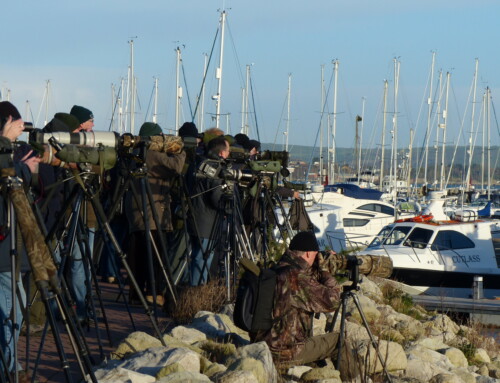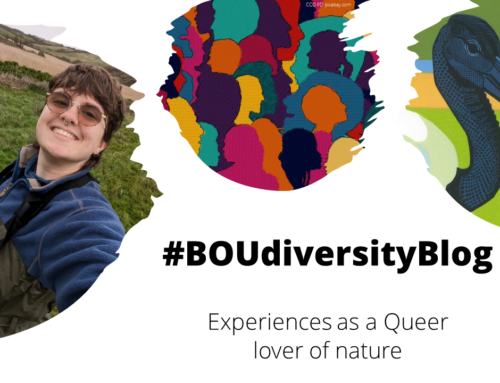As members are aware, the BOU has set up an Equality and Diversity Working Group to guide us as we try to makeour activities more inclusive and actively welcoming to anyone and everyone.
Community matters
Ornithology is both a large and a close community. It spans the globe. Because so many of us know one another right around the world it can feel very small, even intimate. That’s both a positive and a negative. Positive in that we can form such strong relationships which often go beyond professional collaboration to genuine friendship. But negative in that from the outside it can appear a closed, rather than close, community.
We are keen to ensure that we identify and overcome all barriers, to enable ornithology to be welcoming and inclusive to anyone and everyone.
Black Lives Matter
In 2020, events in the US brought the issue of racial diversity and inclusion to the fore. Black Lives Matter demonstrations around the world drove the discussion between individuals, in institutes, in societies, across governments and throughout society as a whole. The BOU is unequivocal in our stand against all forms of racism and prejudice in ornithology and wider society.
Sadly, like many of the biological sciences, racial diversity within ornithology remains pitifully low in countries where the majority are white. This will remain a key issue in coming years, with a particular challenge being how biology and ecology degree courses can increase the intake of People of Colour. Whilst this almost certainly begins at secondary/high school level, well beyond the influence of a small society such as the BOU, we need to ensure that we ourselves are both welcoming and engaging for People of Colour, once they seek to enter ornithology at degree stage.
Read our Black Lives Matter statement
BOU, discrimination and the Law
In response to Black Lives Matter, and the initiatives seen throughout society as a result, we are looking at ways that we can better identify and overcome barriers for all groups within our community.
We are delighted that the recent legacy left by former member John Warham and his wife Pat, is already funding PhD students from Commonwealth nations, as they both wanted. This year, Black Lives Matter highlighted the fact that the first three of these studentships were awarded to universities in the UK, Australia and Canada (with New Zealand the only other country from which we received applications) and students from those same countries were appointed (this may simply reflect where qualifying projects and candidates are most likely to come from). We have not received an application from any institute in the other 50 Commonwealth jurisdictions (whose citizens comprise the majority).
UK discrimination legislation prevents us from discriminating against any group on grounds of race, ethnicity or religion. We still have at least one studentship to award and we strongly wish better to reflect the diversity of the Commonwealth, by making an award to an institute and student from a Commonwealth country other than the four we have received applications from to date. However, we cannot do so unless suitable projects are put forward and candidates apply!
When we next make a call for applications, we ask that, in the first instance, if you know of a qualifying institute, that you encourage them to apply to host a studentship, and secondly, encourage seabird researchers who are citizens of these Commonwealth nations to apply for the position when advertised.
LGBTQIA+
Unlike skin colour, sexual identity is not immediately visible. Likewise, prejudice against the LGBT community can also be less visible.
To help better inform our members and wider ornithological community about the issues faced by LGBT people working in ornithology, we launched our Rainbow Blog series, in which we aim to highlight key issues from different peoples’ perspectives and to bring the individual initials within LGBTQIA+ to life.
So far, we have published articles from ornithologists who identify as gay, trans, queer and ally and there are more articles planned. The series has been very warmly received by our membership, our wider ornithological community and beyond, and again highlights how the BOU can lead on important community issues.
Read all our Rainbow Blogs
This article is reproduced from the November 2020 BOU Member newsletter. Not a member? Then join us here.




